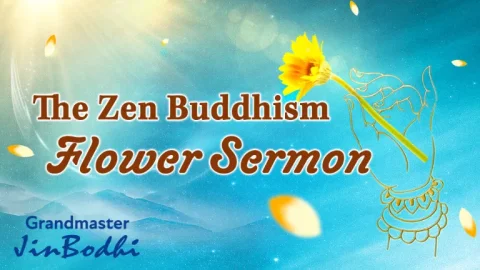
Zen Buddhism, known as 禅 “chan” in Chinese, is a profound school of Mahayana Buddhism renowned for its emphasis on the direct experience of enlightenment through meditation and insightful contemplation. Originating in China and later spreading to Japan and beyond, Zen has left an indelible mark on global culture, influencing art, philosophy, and spiritual practice.
This exploration will delve into the rich history of Zen, its foundational teachings, the transformative benefits of meditation, unique aspects of Zen practice, and practical methods for incorporating Zen principles into everyday life.
What is Zen/Chan Buddhism?
Zen Buddhism traces its origins to Bodhidharma, an Indian monk who journeyed to China in the 5th or 6th century CE. Bodhidharma is traditionally revered as the progenitor of Zen Buddhism, introducing meditation (dhyana) as a pivotal path to enlightenment. Legend holds that Bodhidharma imparted his teachings to his disciple Dazu Huike, marking the inception of a lineage that flourished into Chan Buddhism in China and Zen Buddhism in Japan.
Key Teachings of Zen Buddhism
Zen teachings are characterized by their direct approach to attaining enlightenment and profound insights into the nature of reality. Several key teachings illuminate the essence of Zen practice:
- Your wish/goal determines your energy and wisdom: This teaching underscores the significance of intention and clarity of purpose in spiritual practice. Zen practitioners are encouraged to cultivate a clear, focused mind to channel their energy towards awakening.
- Your mindset determines your success: Zen emphasizes the transformative power of mindset. By nurturing a positive and open mindset, practitioners can surmount obstacles and actualize their true potential on the path to enlightenment.
- Affliction motivates cultivation: Rather than avoiding challenges and adversities, Zen teaches that afflictions and hardships can catalyze spiritual growth and transformation. By confronting and comprehending suffering, practitioners deepen their wisdom and compassion.
The Benefits of Zen Meditation

Zen meditation offers a myriad of benefits that extend beyond spiritual growth to encompass physical and mental well-being:
External Benefits
Zen meditation fosters a deep understanding of natural laws and encourages practitioners to harmonize with the environment. This awareness promotes a sense of interconnectedness with nature, leading to a more balanced and harmonious life.
Internal Benefits
At its core, Zen meditation is a practice of self-discovery and inner exploration. By cultivating mindfulness and awareness, practitioners develop a profound sense of self-understanding and emotional resilience. This heightened awareness allows individuals to navigate life’s challenges with greater clarity and equanimity.
Health Benefits
Scientific studies have documented the numerous health benefits of meditation, including stress reduction, lowered blood pressure, and enhanced immune function. Zen meditation, focusing on mindfulness and deep breathing, contributes to these physical benefits by promoting relaxation and overall well-being.
Transformation of Life
Through dedicated practice, Zen meditation transforms negative habits and thought patterns. By cultivating mindfulness and compassion, practitioners can transcend limiting beliefs and experience profound personal growth. This transformation extends beyond the individual, encompassing a deeper appreciation of life’s inherent beauty and interconnectedness.
What’s the Difference Between Zen Meditation and Other Forms of Meditation?
While Zen meditation shares common goals with other meditation practices, such as mindfulness and stress reduction, it distinguishes itself through its cultural context and specific aims:
Similarities
- Mindfulness: Both Zen and other forms of meditation emphasize present-moment awareness and non-judgmental observation of thoughts and emotions.
- Inner Peace: Practitioners of all meditation traditions seek inner calm and equanimity through regular practice.
- Stress Reduction: Meditation techniques across traditions help alleviate stress and promote relaxation by activating the body’s relaxation response.
Differences
- Cultural Context: Zen meditation is deeply rooted in East Asian culture, integrating elements of Taoism, Confucianism, and Buddhism. This cultural context influences the practice and philosophical underpinnings of Zen.
- Goals of Zen: Zen meditation focuses on direct realization and the pursuit of enlightenment whereas mindfulness meditation highlights the awareness of the present moment with non-judgmental acceptance. Both practices help cultivate awareness but they are different in their methods and philosophical foundations..
Little Zen Buddhism Stories to Illustrate Wisdom and Philosophy

- The Action of Inaction: Reflecting Taoist principles, this story from the Tao Te Ching emphasizes effortless action (Wu Wei). By diminishing compulsive action, individuals align with the natural flow of life, achieving harmony and spontaneity.
- The Little Monk Wiping the Floor: A Japanese monk dedicates a decade to wiping a corridor, eschewing traditional teachings. Through this mundane task, he cultivates humility, discipline, and ego transcendence, embodying the essence of mindfulness and dedication.
- The Meaning Behind a Plucked Flower: Inspired by Buddha’s teachings, this story invites contemplation on life’s impermanence and beauty. When Buddha plucks a flower, only one disciple grasps its deeper meaning, revealing the wisdom found in embracing life’s transient nature.
- Faith, Aspiration, and Practice: The Blessing of a Flood: During a monastery flood, monks face peril and existential crises. Guided by their abbot and Buddha’s teachings, they awaken to faith, genuine aspiration, and meditation practice, transcending fear and delusion to find enlightenment amid adversity.
How to Learn Zen Meditation
Embarking on a Zen meditation practice requires dedication and a commitment to inner exploration:
- Starting Small: Beginners are encouraged to start with short sessions of meditation, gradually increasing their duration as they grow comfortable and familiar with the practice.
- Resources: Numerous online platforms offer guided meditations, instructional videos, and courses on Zen meditation. Especially, Grandmaster JinBodhi’s YouTube channel provides accessible teachings that cover a wide variety of topics.
- Retreats: Attending meditation retreats offers intensive practice and guidance from qualified Zen teachers. Retreats provide a supportive environment for deepening one’s meditation practice and connecting with a community of like-minded practitioners.
Conclusion
Zen/Chan Buddhism offers a transformative path to awakening and personal growth through meditation, mindfulness, and profound teachings. By exploring its history, embracing its principles, and engaging in regular practice, individuals can cultivate mindfulness, clarity, and inner peace. For those interested in delving deeper into Zen meditation, exploring resources such as Bodhi Meditation online offerings, and retreat opportunities can provide invaluable support on this spiritual journey.
In essence, Zen/Chan Buddhism invites us to awaken to the fullness of life, embracing each moment with mindfulness, wisdom, and compassion. Through dedicated practice and a commitment to self-discovery, practitioners can uncover the profound truths of existence and experience the transformative power of Zen in their daily lives. If you want to learn more, visit Grandmaster JunBodhi’s YouTube channel.

